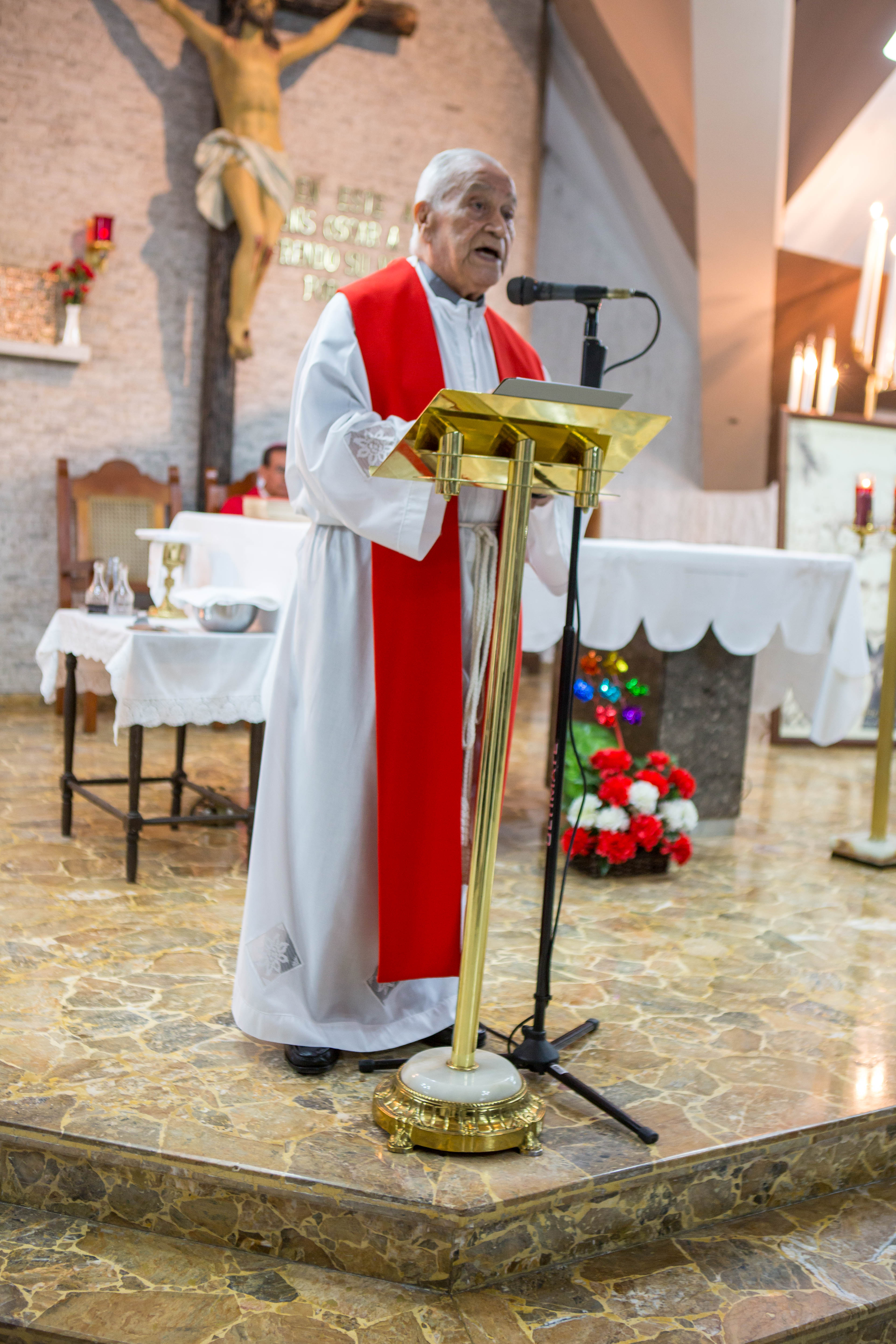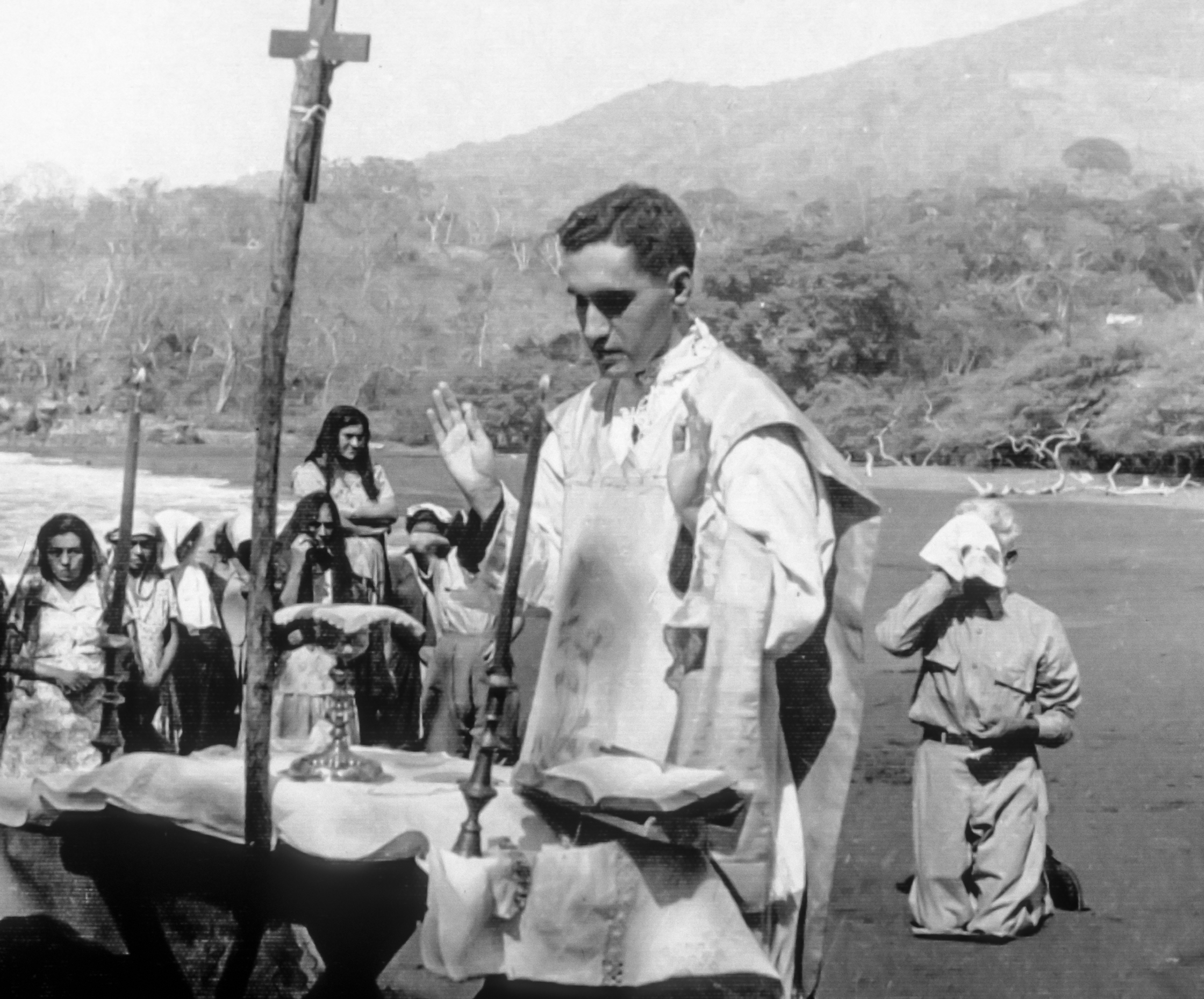Oscar Romero: a man of God
By Monsignor Ricardo Urioste, Archbishop Romero’s Vicar General and close friend

One of my first memories of Archbishop Oscar Romero was when I accompanied him to Rome in 1977. I can never sleep on a plane, so when we arrived at around eight o’clock in the morning, I was thinking about sleeping for a while. Then somebody knocked at my door. I opened, and it was Bishop Romero. He said, “Do you want to go for a stroll?” I said, “Yes, we should. Let’s go!”
And so we went directly to St Peter’s Basilica. He entered the basilica, went to the altar of the confession and he knelt down. I knelt down with him. After something like five minutes, I stood up. I saw him in such deep prayer that I said to myself: “I have to follow this man because he is following God.”
The spirit of Christ
I was fortunate to work with Romero for another three years after this. He was a man of faith, a man of God, a man of prayer. There is a quotation in St Paul’s Letter to the Romans 8:9 that says: “Whoever does not have the spirit of Christ does not belong to me.” And I asked myself, what was this spirit of Christ? And I find three characteristics of Christ essential.
The first was Christ’s sense of praying – looking for God, his Father. Because even if Christ is God, he knows the Father is another person, different from him, so he talks to him every day. And the Gospel tells us how he got up early in the morning and went to the mountain to pray or passed the whole night praying.
Find prayers inspired by Romero
The second characteristic of Jesus is his preaching of the Kingdom of God, based on love for everybody, even for those who don’t like him and make difficulty for him.
The third one is his closeness to the poor. He was close to the poor; to the blind, to the lepers, to the people who needed him.
And these were the three characteristics of Archbishop Romero. What I most admired in Romero was his prayer with God. And I am convinced that he never said or did anything without first consulting with God. This was, as I said, the first characteristic of Jesus – prayer was his life. And the second was the preaching of the Kingdom of God, and the third closeness to the poor. Romero did these also.
Read our answers to your questions about Oscar Romero
He defended the poor in his sermons, in his homilies, and he protected human rights. For him, human rights were divine rights, because man has been created in the image of God. At that time, El Salvador had no-one in charge of defending human rights, officially. So Romero became the first man who – unofficially – defended human rights.
A defender of the poor
El Salvador towards the end of the 1970s was a terrible place to be. So many people were killed. Even priests, sisters, catechists, so many speakers of the word of God. The situation was that the government saw anyone who was close to the poor as a communist. And that’s why they were killing so many people. This was the situation when Bishop Romero was priest and bishop. That’s why he defended in his homilies those who had been killed, those who had been tortured. The situation was very serious.

But during this time Romero gave us strength in his homilies. His homilies lasted more than one hour every Sunday and he explained all three readings of the Mass and then he applied that Gospel thinking to the situation we were living in. After visiting villages in 1978, Romero said: “The humble people of these rural areas tell me that they listen to these words and that they are comforted, nourished and given great hope.”
After the shooting of Bishop Romero, for me personally it was terrible. So many of us felt like orphans when he was not around us any more. The poor people said: “Who is going to defend us now?” We saw the situation getting worse and worse until the civil war started. 1980 was a terrible year. So many people were killed and so many were in poverty.
When it was announced that Romero was a martyr and that his beatification was coming, I was so happy. I gave thanks to God for this. And it made me think – the truth is always triumphant. During his life, Romero was accused of so many things that were false and his beatification is a statement that he was a man of God, a man of the Church, and a man of the Pope.
As I celebrate Romero’s beatification, I think of the legacy he left all of us. His legacy to ask for justice, to respect human rights. He was a man of the Kingdom of God and, especially, a man of the poor.
Please join us in prayer as we celebrate the beatification of Archbishop Oscar Romero
Reblogged this on CAFOD Leeds Blog.
Reblogged this on CAFOD Nottingham.